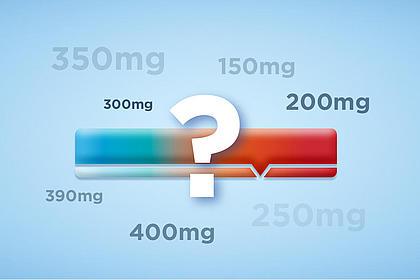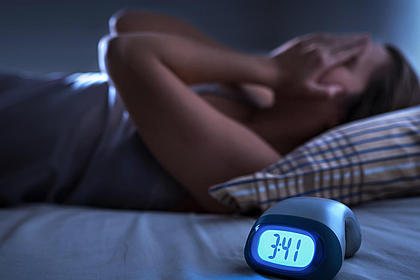Magnesium gegen Müdigkeit

Dass eine geringe Magnesiumversorgung möglicherweise die Muskelfunktion beeinträchtigt, ist weithin bekannt. Doch auch Müdigkeit und Erschöpfung* können die Folge einer nicht ausreichenden Versorgung mit Magnesium sein. Eine bedarfsdeckende Magnesiumzufuhr kann helfen, derartige Beschwerden zu lindern. Lesen Sie hier, wie Magnesium gegen Müdigkeit helfen kann.
Müdigkeit? Mangel an Magnesium als mögliche Ursache
Magnesium trägt zur Verringerung von Müdigkeit und Erschöpfung bei. Das Mineral spielt eine wichtige Rolle für eine normale Tätigkeit des Nervensystems. Bei einem Magnesiummangel kann die Reizweiterleitung der Nervenzellen gestört sein. Außerdem ist eine verringerte Durchblutung eine mögliche Folge. Neben Müdigkeit sind verschiedene Symptome bekannt, die zusätzlich auftreten können:
- Erschöpfung
- Spannungskopfschmerzen oder Migräne
- Schlafstörungen
- Zittern
- Unruhe
- Nervosität
Außerdem ist Magnesium ein wesentlicher Bestandteil des Energiestoffwechsels. Es aktiviert ATP (Adenosintriphosphat), den Kraftstoff der Zelle, und ist dadurch an vielen Funktionen im Körper beteiligt. Fehlt das Power-Mineral, können folglich Müdigkeit und Abgeschlagenheit entstehen.
Magnesium gegen Müdigkeit & Co.: Magnesium aus der Apotheke
Um die Magnesiumspeicher wieder aufzufüllen, kann eine magnesiumreiche Ernährung durch geeignete Magnesium-Präparate aus der Apotheke ergänzt werden. Insbesondere in Zeiten des erhöhten Magnesiumbedarfs – zum Beispiel bei Stress – ist ein Plus an Magnesium besonders wichtig.
Das Produktsortiment von Biolectra® Magnesium bietet mit unterschiedlichen Darreichungsformen und Dosierungen die Möglichkeit einer individuellen, bedarfsgerechten Magnesiumversorgung. Gut zu wissen: Um die Magnesiumspeicher wieder aufzufüllen, ist ein wenig Geduld gefragt. Die einmalige Einnahme von Magnesium ist – auch bei hochdosierten Präparaten – in der Regel nicht ausreichend.
Zusätzlich zu Magnesium: weitere Tipps gegen Müdigkeit
Nicht immer ist allein ein Magnesiummangel schuld an der Müdigkeit. Achten Sie deshalb zusätzlich auf folgende Hinweise:
- Sorgen Sie für ausreichend Schlaf: Versuchen Sie immer ungefähr zur gleichen Uhrzeit ins Bett zu gehen, damit Ihr Körper einen Rhythmus findet. Mindestens sieben Stunden pro Nacht sind ratsam.
- Bewegen Sie sich regelmäßig: Ein gemütlicher Spaziergang ist schon ausreichend, um den Kreislauf wieder in Schwung zu bringen. Noch besser sind sportliche Aktivitäten – auch sie können gegen Müdigkeit helfen.
- Stress abbauen: Weniger Stress bedeutet meistens mehr Schlaf und dadurch weniger Müdigkeit. Versuchen Sie es mit Entspannungsübungen wie Yoga oder Meditation.
Um wach zu werden, ist es zudem gut, ins Tageslicht zu gehen. Auch wenn die Tage grau und trist sind, ist genügend Licht vorhanden und die Müdigkeit kann verbessert werden. Tipp: Gerade am Morgen und in den Mittagsstunden ist der blaue Anteil des Lichts am größten: Dieser unterbindet die Produktion des Schlafhormons Melatonin – wir werden wach.


